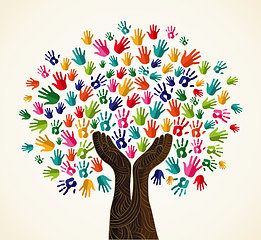Frequently Asked Questions
What is Educational psychotherapy?
Educational Psychotherapy is a form of therapeutic support that attempts to re-enact the learning environment in an attempt to explore the child’s barriers to learning. It combines play and learning tasks to help unlock children’s learning.
The therapist is psychoanalytically trained which means that their work is focused on the reciprocal relationship between the child and therapist. An Educational Psychotherapist carefully observes the child’s responses and interactions, looking to understand a child’s view of themselves from their inner world.
The types of children and young people that would benefit from this support are:
- Those who have suffered developmental trauma
- Those that are finding reading and writing particularly difficult
- Those that find it hard to concentrate in class.
- Those that appear ‘pre-occupied’ by the Class Teacher.
- Distressed or anxious children, struggling to get into school.
- Those that feel unreachable and find learning impossible.
Where are Educational Psychotherapists based?
Some Educational Psychotherapists work in schools supporting children and families, Others work at Child and Adolescent Mental Health Services (CAMHS) and some work privately in a rented room/building.
Who do they work with?
Educational Psychotherapists work primarily with the young person. However, they also work closely with parents/carers and liaise with schools (if they have parental permission)
How do I know if this is the right kind of support for my child?
Educational Psychotherapy offers 3-4 assessment sessions to the child/young person. Once the assessment period is finished, I undertake to meet with parents/carers to reflect on the assessment and think together about whether Educational Psychotherapy may benefit your child/young person.
The assessment period offers the child/young person a chance to see if they feel this form of therapeutic support is helpful to them.
Within the assessment period I will reflect on how the child/young person responds to the room, to the therapist and the learning tasks presented to them. I will also be interested in the feelings the child/young person brings to the assessment.
It is a process whereby the therapist works with the family to think together.
How long will my child need to have Educational Psychotherapy for?
The assessment holds 3-4 sessions for 50mins.
If you and your child/young person decide to begin Educational Psychotherapy, they will sign an agreement to state that the child/young person will attend weekly at the same time, at the same place for 50minutes.
During the assessment review I will offer a period of a term or longer to the child/young person, aiming to meet with parent/carers termly to review the support.
The length of time a child/young person stays in Psychotherapy varies from each individual.
Do they only work with children? What about Parents/Carers?
When a child/young person receives Educational Psychotherapy, I regularly meet with the parents/carers to create a feeling of a partnership of working together to help the child/young person.
Educational Psychotherapists can visit schools and carry out school observations with parental permission; this can be helpful to see the child/young person in their learning environment. Meeting the child’s teacher can be very helpful in thinking together about how best to support the child/young person.
Education Psychotherapists do also offer parent work to those wanting a time and reflective space to think about their events or interactions that they may have had with their child/ young person.

